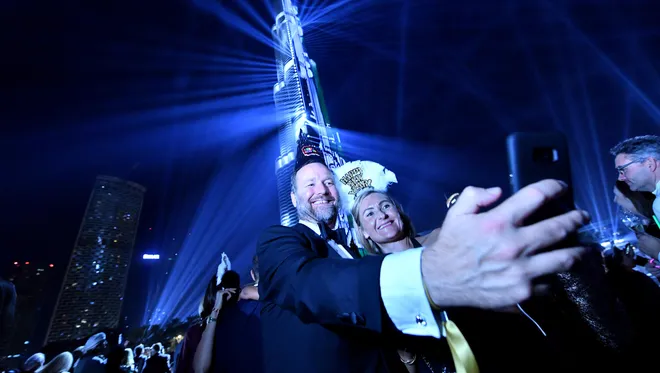Why do we sing 'Auld Lang Syne' at the stroke of midnight? The New Year's song explained
In the final scene of Nora Ephron's iconic 1989 romantic comedy "When Harry Met Sally," the couple embraces as "Auld Lang Syne" starts to play. It's not long until Billy Crystal's Harry begins to pester Meg Ryan's Sally about the meaning of the song. "Should old acquaintance be forgot … does that mean we should forget old acquaintances or does it mean if we happen to forget them we should remember them?" he queries.
Ryan responds, "Well maybe it just means we should remember that we forgot them or something. Anyway it's about old friends."
For those not familiar with the song or the movie, every New Year's Eve when the clock strikes midnight and the calendar flips to the next year, people around the world often join in a chorus of "Auld Lang Syne."
If you're struggling to remember lyrics – or even comprehend them – you're probably not alone. Here's what to know about the famous tune.
Who wrote 'Auld Lang Syne?'
The song was written centuries ago and contains some words we'd normally never use in the U.S. today.
The lyrics were recorded in a poem by Scottish poet Robert Burns in 1788, though he noted that the song had already been in circulation for years before he put it in writing.
While there are various stories about where the song originated, David Hopes, the director of the Robert Burns Birthplace Museum in Alloway, Scotland, previously told the USA TODAY Network in 2014 that Burns adapted an earlier version written down by Scottish poet Allan Ramsay. The museum displays Burns' "improved" version next to Ramsay's version, he said.
The song's rise to fame in North America is likely thanks to Guy Lombardo, whose orchestra played it on his radio and TV shows each New Year's Eve from 1929 to 1977, Hopes said.
What does 'Auld Lang Syne' mean?
The phrase "auld lang syne" directly translates from Scots language to modern English as "old long since," but can be interpreted in practice as “old times, especially times fondly remembered” or an “old or long friendship,” according to Dictionary.com.
If you feel yourself getting a little teary-eyed and sentimental while singing along, it might not just be the champagne. The phrase evokes feelings of nostalgia, especially to memories of good times spent with friends.
The first lines of the song – "Should old acquaintance be forgot, and never brought to mind?" – serves as a reminder to cherish those fond memories that we've already had, which makes the message a fit for New Year's Eve night.
Why do we kiss on New Year's Eve?The reasons behind the romantic moment
'Auld Lang Syne' lyrics
The full, original lyrics to "Auld Lang Syne" extend much further than what is normally sung at New Year's Eve parties in the U.S., where just the first verse and the chorus normally suffice. They are as follows:
Should old acquaintance be forgot,and never brought to mind?Should old acquaintance be forgot,and auld lang syne?
For auld lang syne, my dear, for auld lang syne, we'll take a cup of kindness yet, for auld lang syne.
Contributing: Jay Cannon

Disclaimer: The copyright of this article belongs to the original author. Reposting this article is solely for the purpose of information dissemination and does not constitute any investment advice. If there is any infringement, please contact us immediately. We will make corrections or deletions as necessary. Thank you.




